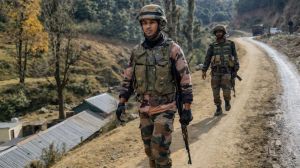Mulk, lost without translation
I met Mulk Raj Anand 50 summers ago at Gurdaspur where I taught history at the local government college. He was on his way to Kahnuwan, a ne...

I met Mulk Raj Anand 50 summers ago at Gurdaspur where I taught history at the local government college. He was on his way to Kahnuwan, a nearby village, which was the scene of his off-beat novel: Across the Black Waters, a book later banned by the Punjab government. Mulk, as he always preferred to be addressed even by youngsters half his age like me, measured Indian life in terms of summers. His Seven Summers was a masterly depiction of the first seven years of his life 8212; from Peshawar to Amritsar. When he published his short story, 8216;The Lost Child8217;, he was compared to Charles Dickens and his work, David Copperfield.
Although complimentary, the comparison was inept. David Copperfield was a simple story of an English boy in distress. The 8216;Lost Child8217;, in contrast, was a psychological study of the mind of an Indian child separated from his parents and in search of his roots. Mulk8217;s own quest for roots lasted for 99 years.
Well, Mulk Raj Anand once honoured me by staying with me in my one-room outhouse in the colonial civil lines of Gurdaspur. He liked the kachcha road leading to my apartment. It was laden with the fallen leaves of an old mulberry, an ancient peepul and the gulmohar, lemon and guava trees abundant in the vicinity.
Filling his glass with soda lemon and salt, he told me that he liked Gurdaspur and was happy to be with me for the night. In an evocative mood he talked of Mirhal, the place near Gurdaspur from where Alexander the Great retreated after erecting 12 pillars on the Beas8217;s banks. He also talked of the Maharashtra saint, Baba Namdev, who lived, saw God, and died in Ghumman, near Gurdaspur. Mulk also talked of Akbar8217;s 8216;Tajposhi8217; at Kalanaur, near Gurdaspur. I also realised he was well acquainted with the gurudwaras around since his mother was of the Sikh faith.
Mulk Raj Anand was now relaxed. Sinking into the easychair of cloth, he asked: 8220;Can you arrange for a Punjabi translator for my Coolie?8221; With diffidence I replied that I will ask my colleague, an eminent Punjabi writer, the late Kirpal Singh Kasel, whether he would be interested in the project. 8220;I want a translator, not a teacher,8221; Mulk replied. I then asked him to consider doing it himself since the book was already in Punjabi English. He chuckled at this, and said, 8220;So that8217;s what Punjabis think of my books!8221;
Mulk Raj Anand8217;s wish to see his work translated into Punjabi, his mother tongue, remained unfulfilled throughout his life. A fact he always regretted.
- 01
- 02
- 03
- 04
- 05































